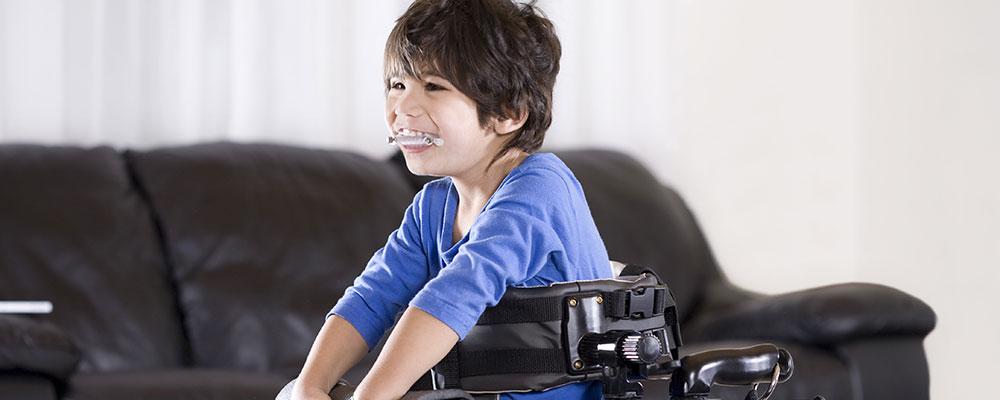Chicago, IL 60601
FREE CONSULTATIONS 312-462-4200
TOLL FREE 833-462-4200
Chicago Cerebral Palsy Symptoms Lawyer

Recognizing the Signs and Symptoms of CP - Illinois Birth Injury Attorneys
While Cerebral Palsy, or CP, is the most common motor disability that affects children in the United States, a diagnosis of this condition is often not made until children are between three and five years old. Due to the different types of CP and the variety of ways a child may be affected, the signs and symptoms of this condition can vary significantly. Parents should be aware of symptoms that involve the following areas of their child's physical development:
Muscle Tone
CP affects the rigidity of the body's muscles. If a child has low muscle tone, or hypotonia, they may have "floppy" limbs, or they may seem overly relaxed. If a child has high muscle tone, or hypertonia, their limbs may seem overly stiff and rigid. Children may also experience involuntary and painful muscle spasms, or their joints may be fused and unable to move properly.
Muscle Control
A child with Cerebral Palsy will often have difficulty controlling their muscles, especially when they are experiencing stress. They may experience involuntary muscle movements, including spastic jerking of the muscles or slow and writhing movement. They may also have difficulty with coordination, and this can often affect their walking, leading to limping, dragging one foot, or uneven weight distribution.
Reflexes
Babies have certain "primitive reflexes," which consist of involuntary movements that occur in response to different physical stimuli. For instance, an infant will extend their arms if their head is tilted below their legs, or their fingers will make a grasping motion when their palm is touched. These reflexes typically disappear at a certain point in a child's development. If any primitive reflexes do not function properly, or if they persist past the point when they should have disappeared, this may be a sign that the child has Cerebral Palsy.
Posture and Balance
As a child learns to sit and stand, the limbs on each side of their body should mirror each other. A child with Cerebral Palsy may have a posture that is not symmetrical, or they may have difficulty balancing as they begin to sit, crawl, or walk. If a child cannot maintain balance without using their hands, this may be a sign of CP.
Motor Functions
The abnormal muscle tone that a child with Cerebral Palsy experiences can affect their ability to perform gross motor functions, or large movements involving multiple limbs. Hypertonia can make a child's limbs too stiff, and they may have difficulty bending or flexing their arms and legs. Hypotonia may cause a child to not have enough strength to support themselves. One potential sign of Cerebral Palsy is a significant delay in milestones such rolling over, sitting up, crawling, standing, or walking.
Fine motor functions involving smaller, more precise movements can also be affected by CP. Parents should pay attention to whether children have difficulty performing tasks like grasping, picking up, and putting down objects.
Oral Functions
Cerebral Palsy may affect the muscles in the mouth and face, including the jaw, lips, and tongue. Difficulty coordinating movements between these muscles can result in speech impairments. A child with CP may also experience difficulty chewing and swallowing food or licking their lips. Drooling is another common sign of Cerebral Palsy.
Help Recognizing CP in a Child
Since Cerebral Palsy will have a major impact on a child's development, it is important to recognize the signs of this condition and receive a proper diagnosis. Since the lifetime costs involved in the care and treatment of CP can be massive, it is essential to determine the extent of the condition as early as possible. At the Birth Injury Law Alliance, we can help you take the necessary steps to diagnose your child's illness, and we will work to ensure that you have the resources required to provide your child with the care they need.
In many cases, Cerebral Palsy is the result of an injury that occurred because of medical negligence during or after a child's birth. If your child was injured because of preventable errors, you may be able to recover financial compensation from those who were responsible. This compensation can make all the difference in your family's ability to address the ongoing costs related to your child's condition.
Our team of compassionate and dedicated professionals will work with you to help you understand the resources and options available when dealing with CP. We will evaluate your case at no cost to you and help you determine your legal options, and we will not collect any attorney's fees unless you receive compensation for your damages. To arrange your free consultation, contact us today by calling 312-462-4200.





